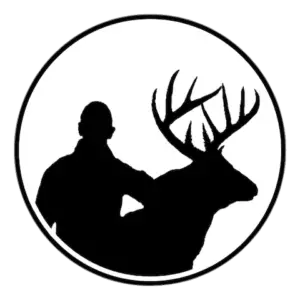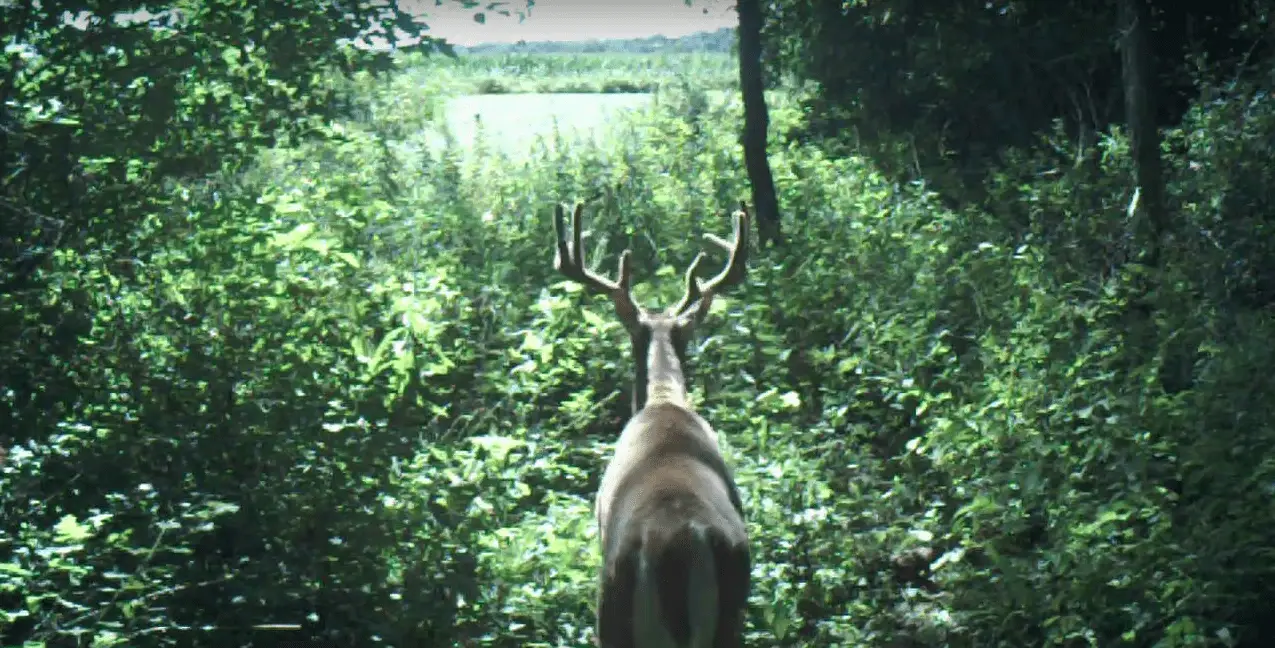There are a lot of different scenarios that explain if deer will return to the same area. The first step is to ask why they left in the first place. Deer leave because of a lack of security, food, cover, water and breeding opportunities. As long as there aren’t consistent and drastic changes in these conditions, the odds are high that deer will return to the same area.
I should probably start off by saying early in this article that deer have unique personalities just like dogs or humans. There will be exceptions to things that I mention throughout this article but my statements will be based on the majority of deer and not the 1% of exceptions that exists out there.
Some truth’s to understand is that does and fawns are different from bucks. And mature bucks are different than young bucks. Does have a much smaller home range than bucks and can tolerate a lot more stress from humans and predators. They also don’t have strict bedding requirements that most bucks have, especially mature bucks.
Mature bucks have a unique way of staying out of sight. Sure, maybe bucks move longer distances at night which is why we don’t see them as often as we see does, but they also have a unique ability to avoid humans.
Whether we see it or not, bucks are feeding at least one to three times during daylight hours. Typically this is happening in his bedroom or very close to his bedroom so he doesn’t have to move very far to feed. Sure, a mature buck may also make an appearance in daylight to eat in a wide open food plot, but this is hit or miss based on time of year, hunting pressure, and unique buck personalities.
Yes, bucks have unique personalities as well as the rest of the deer in the herd. You already know this if you watch enough hunting videos, trail cam videos, and experience several of your own mature buck encounters. For example, some bucks like to fight and some like to run from a fight. Humans are no different. Also, some mature bucks are very active and some are almost like ghosts, never to be seen.
Will deer come back after they smell you?
The most important factor that will keep deer returning to your area is is they feel safe on your land. The best way to threaten a deer’s sense of security is by human intrusion or letting dogs run around your land. Deer trust their nose before any of his other senses so even if they can’t see you or hear you they will not feel safe if they can smell you.
Deer know that people hunt them. If deer aren’t used to hearing, seeing, or smelling you on a consistent basis then they will flee an area if you threaten their security. How long will it take for those deer to come back and will they even come back at all are both questions that you should be asking yourself. Are you willing to risk a mature buck to never come back to your area?
There are two ways for a person to not threaten a deer’s sense of security. The first is by not letting the deer know you are there. The second is by having consistent interactions with the deer that results in a positive experience for the deer. For example, if you enter the woods every day to fill a deer feeder then deer will learn to associate your intrusion with something positive. They might run away when you fill the feeder but they will come back eventually.
With that being said, remember that does are different from bucks and all deer have unique personalities. If whitetails only associate your smell with danger then you may be running deer off for several days or more. Sometimes they will keep an eye on you from a distance and return as soon as you leave. This is all situational. It’s very possible, and happens often, that a bucks personality keeps him away from your property because you make consistent intrusions to fill your feeder. Some bucks just don’t tolerate humans, ever! If you want to keep a buck coming back to your ground, read my article by clicking the link.
It’s going to be hard to keep deer away from your property if it offers good bedding opportunities with thermal cover and quality food. However, if your neighbors cover and food opportunities are just the same as yours and he isn’t threatening the deer’s security, then the odds are good that those deer will spend more time on his property during daylight and not on yours.
What you should do if you spook deer?
It’s inevitable as a hunter or land manager that we are going to spook deer from time to time. If you are likely to scare deer away then there are several strategies to help combat this. Here are a few scenarios.
Outside of hunting season I’m focusing on improving my hunting opportunities for the upcoming deer season. This means scouting, planting food plots and trees, hanging tree stands, ect. I plan each of these things to happen at specific times of the year. And when I do the work, I’m typically completing it all in 1-3 days to limit the amount of human intrusion that I put on my property.
When I spook deer during the off-season, I’m planning for it to happen. I don’t care that the deer leave because I know they will likely return and I’m not sending them to neighbors during hunting season when they could get shot. My intrusion is happening all at once and then everything goes back to normal and safe conditions for the deer.
During hunting season I never intend to spook deer. I think about every hunt before it happens. I consider where I park my truck, the direction the wind is blowing, if the topography will prevent deer from seeing me, and anything else that could alert deer to my presence. No matter how much thought and preparation you make for each of your hunts, sometimes the deer still spook away.
If you spook a deer, you have a couple options. The first option is to stick with the game plan. Have you heard of bump and dump? This is where you spook a bedded deer and you set up your stand within bowshot of where he was bedded. Many times that exact deer will circle back around and return to the same spot or area, typically from downwind of that location. Deer don’t always know what spooked them, especially if they didn’t smell you. Maybe you made some sound that spooked them away from a bed and they have no idea what the sound was.
Another option if you spook a deer on the way to a stand location is to pick a different spot to hunt and change your game plan completely. I only do this if the new spot i intend on going is still favorable for the wind and if I’m very confident that my original plan is going to be a waste of time in the stand. 9 out of 10 times I will continue with my original game plan. I’ve had many successful hunts when I scared deer walking in, however the deer I usually see afterwards are different from the deer that were scared away.
Conclusion
If you want to keep deer returning to your area then offer them the feeling of security, bedding opportunities with thermal cover, quality food, water, and breeding opportunities. The quickest way to keep deer from returning to the same area is by human intrusion or dogs constantly running around. The best way to keep deer coming back is by offering them the best security bedding, food, cover, water, and breeding opportunities.
Deer are smart enough to pattern your intrusions as typically happening during the daylight. They will quickly learn that the safest time for them to be on your ground is during the night. This is the last thing you want as a deer hunter if you want the best opportunities possible to killing your target deer. Your ability to make the majority of deer harvest decisions will depend on how well you manage your intrusions and your ground.

